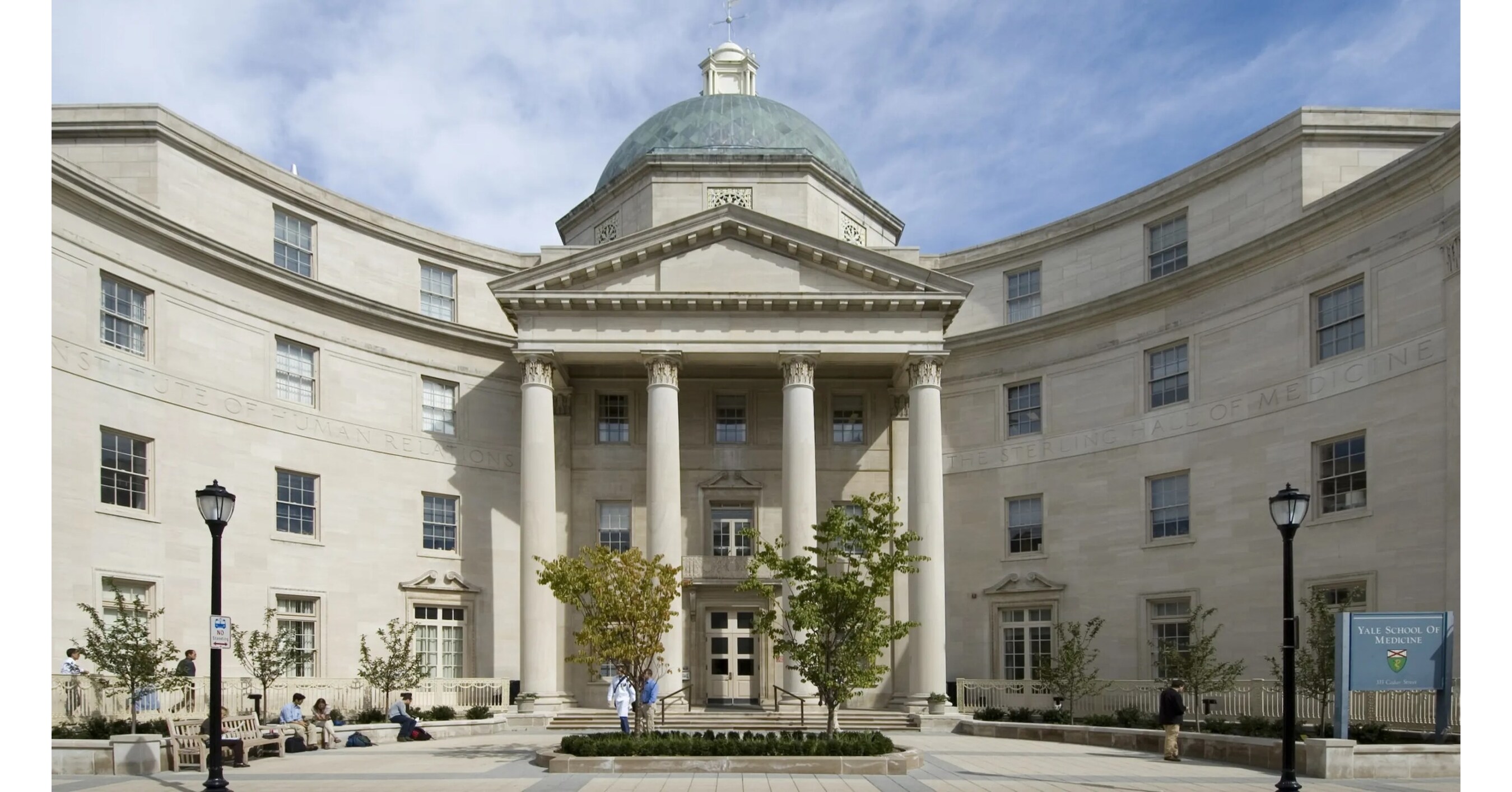‘Transformational’ facility brings together clinical care, diagnostics and research
SAN ANTONIO, Nov. 12, 2025 /PRNewswire/ — University of Texas System and UT San Antonio leaders today hailed “a new era of hope, healing and discovery” for neurological patients and their families with a ribbon-cutting for the UT Health San Antonio Center for Brain Health, a $100 million, 103,000-square-foot facility that will bring specialty care, therapy, diagnostics and research under one roof.
When it opens next month at 4940 Charles Katz Drive, at the intersection with Floyd Curl Drive in the South Texas Medical Center, the facility will be home to the renowned Glenn Biggs Institute for Alzheimer’s and Neurodegenerative Diseases, at UT Health San Antonio, the academic health center of UT San Antonio.
The new Center for Brain Health is the first of its kind for Texas, and with the state’s most powerful 7T MRI scanner – one of the most advanced imaging technologies available, capable of producing ultra-high-resolution brain images for diagnosing and studying conditions like Alzheimer’s, Parkinson’s, epilepsy and other brain diseases.
The facility was built with the support of the UT System as well as with more than $40 million in philanthropic support from across the San Antonio community. Donors and distinguished guests joined university leaders for today’s ribbon-cutting event.
“The Center for Brain Health is a transformational facility bringing together clinical care, innovative research and caregiver support to revolutionize how diseases of the brain are treated and understood,” said Taylor Eighmy, PhD, president of UT San Antonio. “We are profoundly grateful to the UT System for its vision, to our extraordinary faculty and staff for their dedication, and to our generous supporters whose belief in this mission has made it a reality.”
“The work here holds deep personal meaning for me,” said Melissa Garcia, JD, senior associate vice chancellor and chief of staff to the chancellor of the UT System. “Having witnessed my own family’s experience with dementia, I am profoundly moved by the dedication of the physicians, scientists and caregivers who devote their lives to easing the burden for others. The Center for Brain Health embodies the very best of our mission – to bring hope, healing and discovery to the people we serve.”
The new center will redefine the treatment of conditions including Alzheimer’s, dementia, stroke, amyotrophic lateral sclerosis (ALS) and Parkinson’s with multidisciplinary care teams that include neurologists, therapists, counselors and support staff in one convenient location, reducing the need for multiple appointments and disjointed services.
The facility features 91 exam, testing and treatment rooms, 12 infusion chairs for newly approved and investigational treatments, and specialty spaces for therapy, diagnostics and wellness. And it will provide comfortable spaces for patients and families to gather and recharge, offering quiet lounges and rooms dedicated to meditation, art and music.
“The new Center for Brain Health reflects our deepest commitment to serving the public good through discovery, compassionate care and excellence,” said Francisco G. Cigarroa, MD, senior executive vice president for health affairs and health system for UT San Antonio. “Here, world-class physicians and scientists come together to advance understanding, care and comprehensive treatment options for Alzheimer’s disease, dementia and other neurodegenerative conditions bringing hope to patients and families while shaping the future of brain health for our region and our nation.”
“This center is the culmination of years of effort to build a space that not only meets the care needs of patients and families, but also expands our research capacity,” said Sudha Seshadri, MD, DM, neurology professor and founding director of the Biggs Institute. “It is deeply meaningful to me, both personally and professionally, to offer not just treatment, but respect for each person’s uniqueness. A diagnosis doesn’t define a person, and it certainly doesn’t stop their story.”
The facility will house the Department of Neurology of the Joe R. and Teresa Lozano Long School of Medicine at UT San Antonio, and also will address common diseases from headaches to peripheral neuropathy, multiple sclerosis, muscular dystrophy, tremor, myasthenia gravis and traumatic brain injury.
Other services will include geriatric psychiatry, nutrition, neuropsychology, genetic counseling and mental health support for both patients and caregivers, as well as physical, occupational, speech and swallow therapy. Community spaces will host support groups and educational events.
“This is more than a building; it’s a new model for neurological care,” said Carlayne Jackson, MD, FAAN, chair of the Department of Neurology. “Our patients need comprehensive assessments, imaging, neuropsychology testing, family services and more. All of that will be available here in a single, coordinated location.”
The center includes a pedestrian bridge to the Medical Arts and Research Center (MARC), is near the new UT Health San Antonio Multispecialty and Research Hospital and across the street from the Sam and Ann Barshop Institute for Longevity and Aging Studies, enhancing collaboration across research and clinical care teams.
It was designed by Alamo Architects Inc. and TreanorHL, and was constructed by Joeris General Contractors.
The facility is the first in Texas to house a Siemens MAGNETOM 7-Tesla Terra.X MRI system. It represents a substantial upgrade over conventional MRI scanners, which generally operate at 1.5 or 3 Tesla. MRI power is measured in Tesla units, with 7 Tesla representing a magnetic field strength more than 140,000 times that of Earth.
Compared to standard MRI, the 7T offers dramatically improved resolution, especially in deep or complex regions such as the brain stem and temporal lobes. It can distinguish differences that may not be visible with lower-powered scans. For example, the 7T can more accurately distinguish between a benign blood vessel and an aneurysm.
The center is expected to benefit from Texas voter approval Nov. 4 of Proposition 14, establishing a 10-year, $3 billion Dementia Prevention and Research Institute of Texas that will administer grants to researchers studying a variety of brain diseases. In Texas, 459,000 people aged 65 and older are living with Alzheimer’s, and about 1.1 million family caregivers provide essential support to people living with dementia.
“With the new Center for Brain Health, my hope is that we can make Alzheimer’s a condition people live with and manage – like diabetes or high blood pressure,” Seshadri said. “That’s the kind of hope we’re working to bring to every patient.”
UT Health San Antonio is the academic health center of The University of Texas at San Antonio (UT San Antonio), offering a comprehensive network of inpatient and outpatient care facilities staffed by medical, dental, nursing and allied health professionals who provide more than 2.5 million patient visits each year. It is the region’s only academic health center and one of the nation’s leading health sciences institutions, supported by the schools of medicine, nursing, dentistry, health professions, graduate biomedical sciences and public health that are leading change and advancing health-related fields throughout South Texas and the world. To learn about the many ways “We make lives better®,” visit UTHealthSA.org.
Stay connected with UT Health San Antonio on Facebook, Twitter, LinkedIn, Instagram and YouTube.
The Glenn Biggs Institute for Alzheimer’s and Neurodegenerative Diseases at UT Health San Antonio is dedicated to providing comprehensive dementia care while advancing treatment through clinical trials and research. The Biggs Institute is a National Institute on Aging (NIA)-designated Alzheimer’s Disease Research Center (ADRC). UT Health San Antonio is the academic health center of The University of Texas at San Antonio (UT San Antonio). In addition to providing patient care and conducting research, the Biggs Institute partners with the School of Nursing at UT San Antonio to offer the Caring for the Caregiver program.
SOURCE UT Health San Antonio






